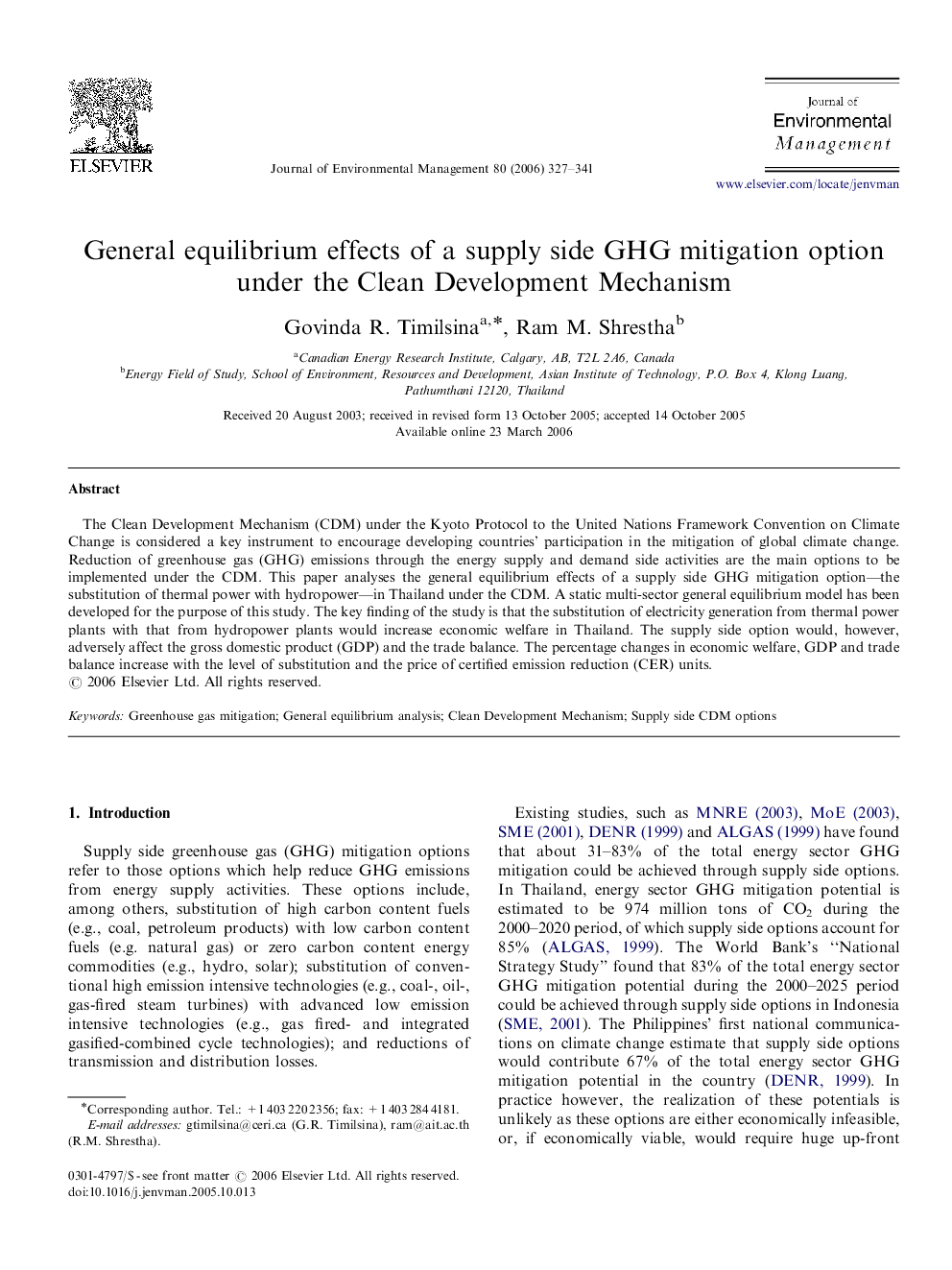| Article ID | Journal | Published Year | Pages | File Type |
|---|---|---|---|---|
| 1058987 | Journal of Environmental Management | 2006 | 15 Pages |
The Clean Development Mechanism (CDM) under the Kyoto Protocol to the United Nations Framework Convention on Climate Change is considered a key instrument to encourage developing countries’ participation in the mitigation of global climate change. Reduction of greenhouse gas (GHG) emissions through the energy supply and demand side activities are the main options to be implemented under the CDM. This paper analyses the general equilibrium effects of a supply side GHG mitigation option—the substitution of thermal power with hydropower—in Thailand under the CDM. A static multi-sector general equilibrium model has been developed for the purpose of this study. The key finding of the study is that the substitution of electricity generation from thermal power plants with that from hydropower plants would increase economic welfare in Thailand. The supply side option would, however, adversely affect the gross domestic product (GDP) and the trade balance. The percentage changes in economic welfare, GDP and trade balance increase with the level of substitution and the price of certified emission reduction (CER) units.
